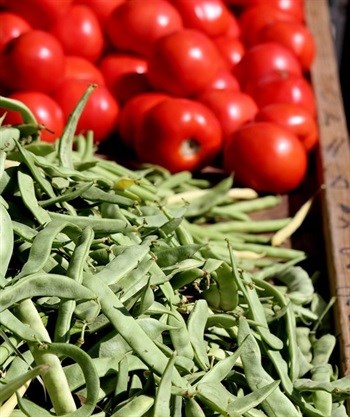






Not only is the pest and disease load heavier under persistent moist conditions, but growers can’t apply fungicides and insecticides because the rain washes it off.
Vegetables in the field have absorbed inordinate amounts of water, drastically reducing their shelf life. A market agent at RSA Marketing at the Tshwane Fresh Produce Market says some vegetables start to go soft and mouldy within five hours of arrival at the market, even under cold room conditions.
Affected produce are currently selling at approximately half their usual price, while good-quality brassicas and leafy vegetables can now obtain up to double the usual price. The market is seeing a shortage in chillies, spinach, okra and green beans.
Bossie Boshoff from the Farmers’ Trust market agency says: “There are no good-quality green beans at the moment, they’ve all got rust. It is the same with spinach, lettuce, and tomatoes.”
He foresees shortages in certain vegetables, extending the effect of the heavy rain. “Farmers in the Brits area in Northwest had until the end of February to plant pumpkins, tomatoes, maize and gem squash. Many farmers just couldn’t plant because of the rain, so they missed that window period. For three weeks they could neither plant nor harvest, especially with turf soil, which you must leave alone when it’s wet.”
Onion producers were affected too, as some were unable to completely dry their onions before sending them to the market. On the other hand, the onion yield is high this year, also because of the rain, and consequently onion prices are about 30% down from last year this time.
Low prices are also influenced by a lower demand for vegetables, which traditionally dips over January and February and picks up during the colder months.
“But farmers are not complaining. At least the groundwater is being replaced and the dams are filling up. As a farmer once said to me: Better a wet crop failure than a dry one,” says Boshoff. – Fresh Plaza

AgriOrbit is a product of Centurion-based agricultural magazine publisher Plaas Media. Plaas Media is an independent agricultural media house. It is the only South African agricultural media house to offer a true 360-degree media offering to role-players in agriculture. Its entire portfolio is based on sound content of a scientific and semi-scientific nature.
Go to: http://agriorbit.com/